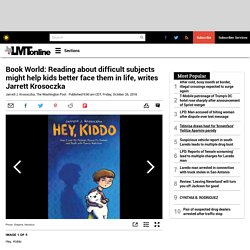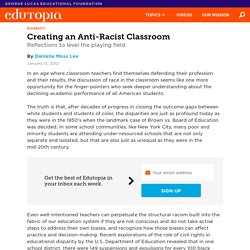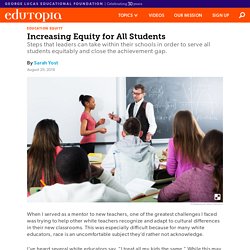

Book World: Reading about difficult subjects might help kids better face them in life, writes Jarrett Krosoczka - Laredo Morning Times. Jarrett J.

Krosoczka, The Washington Post Published 9:00 am CDT, Friday, October 26, 2018 Hey, KiddoHey, Kiddo Photo: Graphix, Handout Hey, Kiddo Photo: Graphix, Handout Book World: Reading about difficult subjects might help kids better face them in life, writes Jarrett Krosoczka There are books for young people that hold difficult truths, and we gatekeepers - writers, parents, teachers, librarians - often find ourselves trying to sort out just what is appropriate for our kids to read about. For me to write this harrowing tale of my upbringing, I needed to write openly and authentically so young people dealing with similar situations would feel less alone. I told my story from the perspective of my 17-year-old self because that is an incredibly interesting time for a person - that moment you're about to be launched into the world on your own, just as you're trying to sort out who you are.
Reading for a Better World. Reading Representations of Themselves. Developing Students' Critical Literacy. The Danger of a Single Story annotated script. TedTalk mini High School Training Ground Malcolm London. Bryan Stevenson: We need to talk about an injustice. (651) The Dangers of Whitewashing Black History. (651) This mouth, this body, this being, is an act of rebellion. (651) TEDxPhilly - Philly Youth Poetry Movement - Youth empowerment & self-sustainable education. (651) Spoken Word: Southern Word at TEDxNashville. (651) A Change Gon Come: Malcolm London at TEDxWindyCity. (651) Malcolm London: "High School Training Ground" The Crisis in Black Education: Reaching Students Where They Are. Dr.

Bettina Love is a professor of education at the University of Georgia who grew up immersed in hip-hop culture in the early 1980s. She developed Real Talk: Hip Hop Education for Social Justice, a Common Core–aligned after-school program for elementary students that "positions the culture, social context, learning styles and students’ experiences at the center" of the curriculum. Love believes that hip-hop is a valuable, highly engaging teaching tool that can help African American students deepen their understanding of racial identity, political power, and social justice—and develop crucial skills including critical thinking, problem solving, and communication. We talked to Love about why hip-hop shouldn’t be treated as mere entertainment, how civics education can be integrated into curricula to power positive change, and why she doesn’t think there’s a crisis in black education.
EDUTOPIA: You’ve spoken about the power of hip-hop to help students develop valuable skills. Creating an Anti-Racist Classroom. In an age where classroom teachers find themselves defending their profession and their results, the discussion of race in the classroom seems like one more opportunity for the finger-pointers who seek deeper understanding about the declining academic performance of all American students.

The truth is that, after decades of progress in closing the outcome gaps between white students and students of color, the disparities are just as profound today as they were in the 1950's when the landmark case of Brown vs. Board of Education was decided. In some school communities, like New York City, many poor and minority students are attending under-resourced schools that are not only separate and isolated, but that are also just as unequal as they were in the mid-20th century. Moreover, teacher feedback on suspension forms for white students included notes that compassionately described extenuating circumstances that might have caused the behavior, i.e. 1) Don't ignore race. 4) Read!
Edutopia. When Girls Spit: The Power of Spoken Word. In today’s society, we have seen the power of words. Words that heal, and words that destroy. Words that promote fear, and words that promote change. Our words matter. Spoken word can be used as one of many pedagogical tools that will encourage girls of color to speak their “herstories” in ways that privilege their cultural knowledge and brilliance in school. A Pathway to Equity: Resources for Teachers and Coaches. Fostering Critical Literacy Through Popular Culture in English Language Arts. Culturally Sustaining Pedagogy in the Literacy Classroom. Reading and Becoming Living Authors Urban Girls Pursuing a Poetr.
Authoring New Narratives with Youth. Flipping the Script Analyzing Youth Talk about Race and Racism. Critical race ethnography in education Narrative i. Bryan Stevenson: We need to talk about an injustice. Alice Goffman: How we're priming some kids for college — and others for prison. Ismael Nazario: What I learned as a kid in jail. Elevating Student Voice Through Senior Talks. Edutopia. Increasing Equity for All Students. When I served as a mentor to new teachers, one of the greatest challenges I faced was trying to help other white teachers recognize and adapt to cultural differences in their new classrooms.

This was especially difficult because for many white educators, race is an uncomfortable subject they’d rather not acknowledge. I’ve heard several white educators say, “I treat all my kids the same.” While this may come from a sincere place of wanting to promote equality, a color-blind perspective can diminish and undermine a child’s culture and identity and the validity of painful experiences they may have had with racism and bias. Likewise, refusing to discuss race frankly and openly can stymie a school’s growth and keep us from building a shared understanding of how our assumptions might advantage some students over others. Here are some steps leaders might take toward reducing bias in their schools and increasing equity to meet the needs of all students. Let the Data Be Your Guide. Monique W. Morris: Why black girls are targeted for punishment at school. Chimamanda Adichie: The danger of a single story.